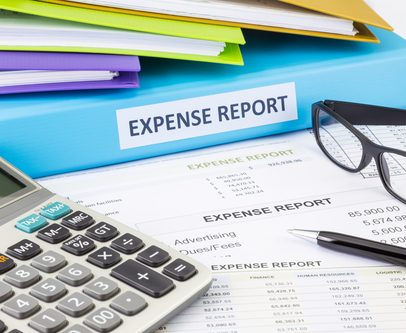
Whether you are considering investing in rental properties or have an existing portfolio, managing those properties can be an overwhelming task. So, to help you in your investment endeavors, Bay Property Management Group has assembled a guide to property management tasks that every landlord should be familiar with. While this is not everything you need to know, it will give you some idea of the time you may be required to budget. Continue reading for helpful tips, how-to guides, and things to look out for below.
What You Can Find in This Guide to Property Management
- Choosing an Investment Property
- Determining Rental Pricing
- Renting Your Property
- Write a Rock-Solid Lease
- Maintenance and Inspections
- Collecting Rent
- Dealing with Evictions
- Accounting Best Practices
- Hiring a Property Management Firm

Choosing an Investment Property
Are you considering investing in rental property? Investors looking to diversify see a great opportunity in purchasing local real estate and turning it into a rental property. Rental properties provide extra cash flow as well as long term appreciation. Many individuals can benefit from this type of investment, and below are a few tips to get you started.
Are You Ready to Invest in Rental Property?
Rental property investment takes some preparation and consideration on your part. Before taking the plunge, investors should access their financial situation and make sure rental properties meet their business goals. While rentals can provide income, owners must also have enough capital to cover emergencies or losses that can arise. Talk to local bankers or other real estate professionals for guidance. We have assembled some items in this guide to property management to consider below.
Points to Consider Before Investing
- Personal Finances: You need to have at least six months of income set aside to cover personal and investment property expenses if something does not go according to plan. Having an emergency fund offers peace of mind and alleviates future stress. In addition to an emergency fund, you will need to budget for taxes, maintenance, utilities, marketing, and miscellaneous expenses.
- Local market: What are the average rental prices in the area? Which neighborhoods are the most lucrative, and why? The answers to these questions provide valuable information about how much you should consider paying for a home in certain areas. A local property management company would know the best cities in Maryland and should be able to give you current trends and statistics to help you make a well-informed decision.
- Projected Opportunity – Consider areas that are poised to skyrocket over the next few years, and cater your decisions toward the type of tenants you can expect to see in those areas.
How to Find the Right Income Property
Once you have considered the costs and reviewed your finances, it is time to find the right property! Research deeply into each prospective area to determine the best potential for tenant desirability. To help narrow down your search, use this guide to property management to consider the following critical factors:
- Neighborhoods: Spend time in each potential community. Consider proximity to everyday amenities and the type of individuals who live in the area. Some neighborhoods may be more family-friendly, while others may cater to young professionals or college students.
- Schools: Look at school ratings in prospective areas. Proximity to schools can be a strong deciding factor for families. Rental properties near technical schools, colleges, and universities can be great locations to earn a consistent profit.
- Safety: Crime reports in a neighborhood are a valuable resource to property owners. A safe community decreases the likelihood of your property being burglarized or vandalized. Tenants also value safety when looking for a home to rent.
- Amenities: Every bell and whistle is not necessary, but a property with access to valuable amenities increases the appeal of the home. Neighborhood pools, recreational facilities, and parks are all significant assets to a rental property’s success and will attract prospective tenants.
Determining Rental Pricing
When listing your home as a rental property, deciding on a price is a critical decision. It is important to consider your mortgage payment and all other costs associated with the home. However, you will also need to think about the cost of vacancy and turnover. Keep in mind, especially if you have a high mortgage, owners may not make a profit for the first few years. So, research what is on the local market and gauge your pricing to be in line with comparable units in your area. See our guide to property management tips on selecting rental rates below!

- Neighborhood: Area plays a considerable role in determining value. Therefore, a highly desirable neighborhood will bring in a much higher rental rate than a similar home in a less popular area of town.
- Size: Look at rentals that are similar in size with the same number of bedrooms and bathrooms.
- New Construction vs. Old: Many renters are willing to pay a little more for a newer construction property as the amenities that are often the higher end.
- Amenities: Renters will often compare similarly priced homes and decide based on the amenities they offer when looking for a rental property.
- Updates: Newer kitchens and baths with high-end appliances as well as hardwood floors are more desirable than units without.
- Square Footage: The size of your home will play a big part in the value.
- Layout: Hands down, open floorplans are more sought after.
- Bonus Features: Amenities such as decks and a fenced yard, or finished basements bring higher rental rates than a home without.
Renting Your Property
Advertising is crucial in the property management world. Maximizing appeal along with steps to attract desirable tenants are a key to financial success. A quality lead would be someone that meets your income standards and have a stable rental/credit history. It can be difficult to specifically target those individuals digitally due to discrimination laws around pay per click (PPC) ads. To get the most out of your efforts, follow these marketing tips below from our ultimate guide to property management checklist.
Rental Advertising to Attract Great Tenants
- Details Matter: Always include price and transparent descriptions of your rental property. You may think that adding the amount will deter prospects, especially for a pricey unit. However, the opposite is true! By listing the price in the ad, you are assured of attracting renters who are explicitly looking for a property in your price range.
- Use Keywords: Keywords can be a great way to get your ad noticed and highly ranked on search engines. For example, if the property that you have for rent happens to be more expensive, you may use keywords like “luxury” and “upgraded” to attract the correct audience.
- Professional Photos: Professional images are another great way to attract quality tenants. Hire a licensed real estate photographer to capture the property well. Remember, a picture is worth a thousand words.
- Highlight Amenities: Always highlight what sets your property apart from others. This might be common areas like gyms or a business center, or other amenities like upgraded appliances, smart home products, and so on.
Advanced Advertising Tips for Rental Property
- Boosted Ads: Boosted or paid ads on social media, Google, and listing sites is a quick way to bring visibility to your property. Remember the advice above when building the ads to help attract the correct audience on these boosted posts. Either hire someone with search engine optimization (SEO) knowledge or use a template for ads (particularly on Facebook) to be sure you’re targeting correctly without breaking any laws.
- Social Media: Use social media not just for paid ads, but as a form of communication with tenants. Your social media pages can include the best photos and videos of your property, any rent specials, and links to related blogs about renting properties. This can help you organically grow your property’s online reputation.
- SEO/SEM: SEO, or search engine optimization, is vital for getting the most ad views, clicks, and conversions. If you do not understand how to properly optimize rental listings, the property website, social media, blogs, etc., it’s essential to reach out to someone who does. Search engine ranking is critical to getting clicks on your property. Typically, no one scrolls past the first page of a search engine, so being one of the top links is vital to get traffic to the listing.
- Hire a Professional: Reach out to a marketing agency or a property management company to assist you with ads. Advertising isn’t everyone’s “thing,” but it also can’t be done halfway. Rental advertisements should be appealing, appropriate, and optimized to get the most of your advertising efforts.
Tips for Finding Quality Tenants
Your property is now on the market, you have scheduled tours, and people are interested, now what? As you continue reading through this ultimate guide to property management, below are some key points to help you find the right tenant for your rental.
- Screening: Always screen every rental applicant before allowing their application to be accepted and a lease to be signed. Screening can be tedious and take a bit of time, but it’s a necessary step in the property management industry. Typical qualifications include income verification, rental history, references, creditworthiness, and criminal background check. Failing to screen can and will land you with trouble tenants that end up evicted for nonpayment.
- Communication: Be upfront about the details of the property and the agreement, including the cost of the property, utilities, and any other fees. The best thing to do is pre-screen the tenant in person by asking questions like if they plan to bring pets, if they need parking, etc.
- Well-Written Lease: A well-written lease is the best way to ensure tenants understand that they are genuinely responsible for rent and upkeep. The contract should include penalties for lease violations, damage to the property, or nonpayment.

Writing a Rock-Solid Lease
It is no surprise that the leasing documents you have should be well-written and legally sound. This is not the place to skimp on time, effort, or money, as this is what protects your financial well-being in the event of a dispute. Read on in this guide to property management as we examine top expert tips for writing a secure lease for your rental property.
5 Expert Property Management Tips for a Strong Lease
- Hire an Attorney: In addition to federal laws, every state and even city has its own specific landlord-tenants laws that you must follow. It is always a good idea to educate yourself about the regulations that apply to you. However, the last thing you want to do is include something in your lease that violates a law. Therefore, have an attorney look over a finalized lease agreement. This will save you lots of time, money, and hassle in the long run.
- Have Multiple Copies of Your Lease: Digital copies are great, but they can be manipulated. Therefore, you must always have a paper copy of the lease agreement kept on file. This gives you another option to refer to in the case of a dispute.
- Prepare Addendums: Thoroughly address any lease changes with an addendum. These documents will outline the details of any special requirements or circumstances there may be and are added as part of the completed lease document. Keep in mind; you must include a clause stating that any changes to the lease agreement will only be considered valid if in writing.
- Focus on Clarity: Use simple terminology, make it short and to the point, and never leave any open-ended clauses that allow room for interpretation. If things are not clear, and your tenant can poke holes in each lease provision, chances are the written document you thought was in place to protect all parties will actually be used against you.

Maintenance and Inspections
Property maintenance is both the tenant and the landlord’s responsibility. If a property is well-maintained by the tenants and the landlord, it is more likely to attract interest in future renters and will lessen the amount of recurring large-scale maintenance problems. Responsibilities should be clearly defined within the lease and its addendums to avoid confusion. Below are some landlord tips on how proper maintenance can help maximize your return on investment.
Maximize ROI with Proper Maintenance
- Routine Inspections: Inspect the property thoroughly at least every six months. Additionally, detailed inspections with photos should occur as each tenant moves in and moves out to document conditions. This will ensure the property stays in good shape, and maintenance issues are addressed as they come up.
- Cleanliness: Always complete a deep clean between tenants. Also, freshen carpets and wall paint as needed to keep the property looking new while keeping up with design trends.
- Turnover Process: The inspection, cleaning, painting, and flooring options are all part of a solid turnover process. Update and make repairs as needed to ensure the property looks appealing, is safe, and keeps up with changing tenant taste in design. If you have a bank of trusted vendors already, you are ahead of the game.
- Communication: Keep in touch with tenants and their maintenance requests. Always respond to maintenance requests promptly for both the sake of your tenant and your property upkeep.
How to Go About Collecting Rent
Collecting rent is one of the most important tasks assigned to your property management venture. As technology changes, many landlords wonder what the best and most efficient options for collecting rent. Below in this comprehensive guide to property management, we take a look at some of the most common ways to collect rent.
How to Collect Rent From Your Tenants
- Online: Allowing tenants to access an online portal to pay their monthly rent is typically considered the best way. In fact, many tenants have come to expect this as an option available to them. It is convenient for your tenant, secure, and guarantees that the funds submitted are going to be deposited into your bank account.
- Check or Money Order: Personal checks can be a gamble, and while some landlords still accept them, the majority do not. That said, if you do not accept paper checks, money orders are a safe and simple alternative.
- Direct Deposit: There may be instances where you want your tenant to transfer their rent from their bank account directly into your bank account. Though this is not an option that will appeal to everyone, it is secure.
- Mail-in Payments: Allowing your tenants to mail their rent to either you or your property management company is a widely accepted practice. However, the risk of your tenant’s check getting lost in the mail exists and can cause a delay in your getting paid.

Dealing with Evictions
All landlords should be familiar with the eviction laws and processes in their local state or county. Do not skimp on the screening process, or you could find yourself spending tens of thousands of dollars to compensate for your oversight. Unqualified tenants can cause significant damage to the property and may even stop paying rent altogether. When that happens, eviction is an unfortunate and costly next step in this guide to property management.
Steps of the Eviction Process
- Filing the Rent Notice
- Court Hearings
- Waiting After You’re Granted the Warrant
- Scheduling the Eviction with the Sheriff’s Office
- Dealing with the Details on the Day of the Eviction
Filing the Rent Notice
If a tenant hasn’t paid rent for a particular month, you’re allowed to file a notice in court any time after the fifth of that month. Be sure to adhere to the guidelines of your lease and give the tenant any applicable grace period that’s specified before you file. For example, if your contract says the tenant has a ten-day grace period after the first of the month in which to pay his or her rent, you’ll need to wait until this grace period has passed to file.
The Court Hearing
The next step is the court hearing. At the court hearing, your job as the landlord is to try to obtain something known as the warrant of restitution. The warrant of restitution allows the landlord to take back possession of the property. If you’re successful in winning your court hearing, the judge will allow you to obtain a warrant of restitution, which legally permits you to regain possession of your rental property.
Waiting After You’re Granted the Warrant
The sheriff is helpful and even required in the eviction process. Once the judge awards the warrant of restitution, you’ll need to wait for seven to ten business days before you can call the sheriff’s office to schedule the eviction. The paperwork has to find its way from the courthouse to the sheriff’s department. This can take several days.
Scheduling the Eviction with the Sheriff’s Office
When you call the sheriff’s office, they’ll give you a scheduled eviction date, which will typically be about 30 days or so out from the date on which you call. It’s not uncommon for paperwork to move rather slowly from the courthouse to the sheriff’s department. You might need to make several calls before the sheriff’s office schedules the eviction. This can be an incredibly time-consuming process, and it’s one of the reasons our clients rely on the full suite of property management services we offer at Bay Property Management Group. We take care of these phone calls for you.
Dealing with the Details on the Day of the Eviction
On the date of your eviction, the sheriff will typically give you a few-hour timeframe in which he or she will be at the property for eviction. As the landlord, you or a designated appointee will need to be present at the property to meet the sheriff and evict the tenants. Often, the renters won’t be present. If that’s the case, you should have movers on hand to remove their property from your home or apartment unit. Even if the tenants are present, they’ll likely leave behind a lot of stuff that will become your responsibility to haul away. The more items you can remove from the premises while the sheriff is on-site, the easier things will be in the long run.
Accounting Best Practices for Landlords
Part of being an efficient and responsible landlord involves maintaining impeccable financial records. Additionally, these records become invaluable in instances of tenant or vendor disputes and can make tax time a breeze. So, follow along with us below as we outline some accounting best practices, including tips for tracking expenses for rental properties.

Efficient Banking Practices for Landlords
- Avoid Co-mingled Funds
- Track and Itemize All Expenses
- Establish Key Reports
- Periodic Reconciliation
- Set-up and Escrow Account
Avoid Co-mingled Funds
To simplify transactions and accounting functions, create different accounts for each property. Avoid mixing personal funds with those from your investment properties. Therefore, any expenses or funds can easily be tracked and documented with ease. If you decide to open an LLC for your rental properties, separate accounts are required.
Track and Itemize All Expenses
Any expenses, invoices, and payments should be meticulously recorded. Tracking serves several purposes, such as tax reconciliation and for use in determining the profitability of your investment. By itemizing different expenses, you may be able to claim these against your taxes to reduce your overall tax bill.
Establish Key Reports
Once you are tracking expenses for rental properties, the next step is having some key metrics easily accessible. The ability to quickly see important information regarding profit and loss, expense trends and a summary of financials are essential to success. Not only does this help you run your business better, but it also makes you look more professional to banking institutions, lenders, or investors. However, if you are not a whiz with Excel, various software options can generate a lot of the things you need almost instantaneously.
Periodic Reconciliation
Just as you would balance your checkbook, business accounts need the same attention. No one is perfect, so data entry errors can and do occur. To ensure your reporting and financials are accurate, periodically check them against your bank statements. By establishing a comprehensive tracking system, reconciling against your bank paperwork should be a simple task done each month.
Set Up an Escrow Account
Well, the answer depends on your local and state laws, but regardless it is a good thing to have. An escrow account provides a neutral place to hold tenant security deposit funds during the duration of the lease. Your location will determine what laws apply, but all or some of the factors below may apply.
Escrow Rules for Landlords
- Set up an escrow account or deposit the security funds into a financial institution
- Landlords that reside out of state will need a local account where their rental property is located
- Some states require funds to be placed in an interest-bearing escrow account

Hiring a Property Management Firm
After reading this guide to property management, are you starting to think you might need a property manager to handle your rental property? Owning an investment rental property can be an advantageous experience, but it can also be tough work at times! Employing a property management company will allow you to be hands-off and not have to deal with pesky maintenance calls and other time-consuming tasks. However, this service does come at a cost, and only you can decide if that cost is worth it for your rental property goals. Continue reading to learn the top 10 reasons to hire a professional.
Top 10 Reasons to Hire a Property Manager
- Property managers thoroughly screen all potential applicants.
- A professional manager handles all aspects of the eviction process.
- Property managers answer and attend to after-hours phone calls.
- Property management companies deal with any lawsuits.
- The professionals come equipped with in-house maintenance and vendor relationships.
- Your property manager will handle any tenant disputes.
- Property managers address neighbors and HOA complaints.
- Experienced managers know how to deal with tenant damage and how to protect your interests.
- Property managers companies can quickly contact tenants in mass emails to warn against natural disasters, remind of scheduled maintenance, or important property updates.
- A trusted rental manager allows you to enjoy your day-to-day without the hassles of administrative tasks.
Final Thoughts
So, ready to tackle rental management on your own? Managing properties and tenants can be an overwhelming and, at times, complicated task. Bay Property Management Group offers full-service rental property management throughout Maryland, DC and Pennsylvania. Contact us today for a free rental assessment and let us take the stress out of owning investment property.

